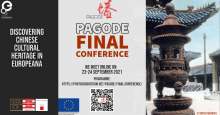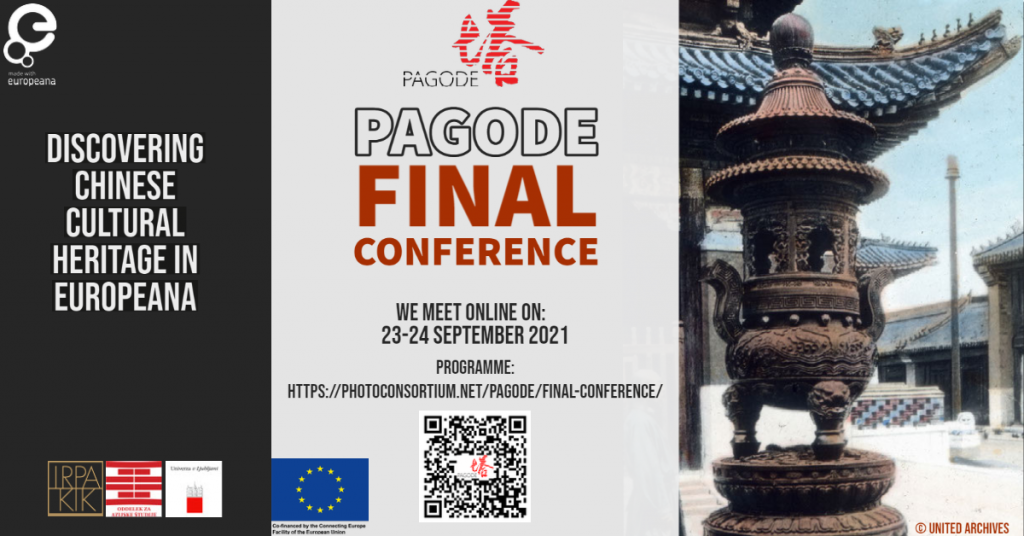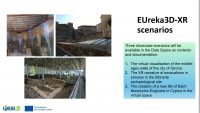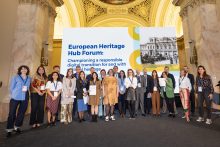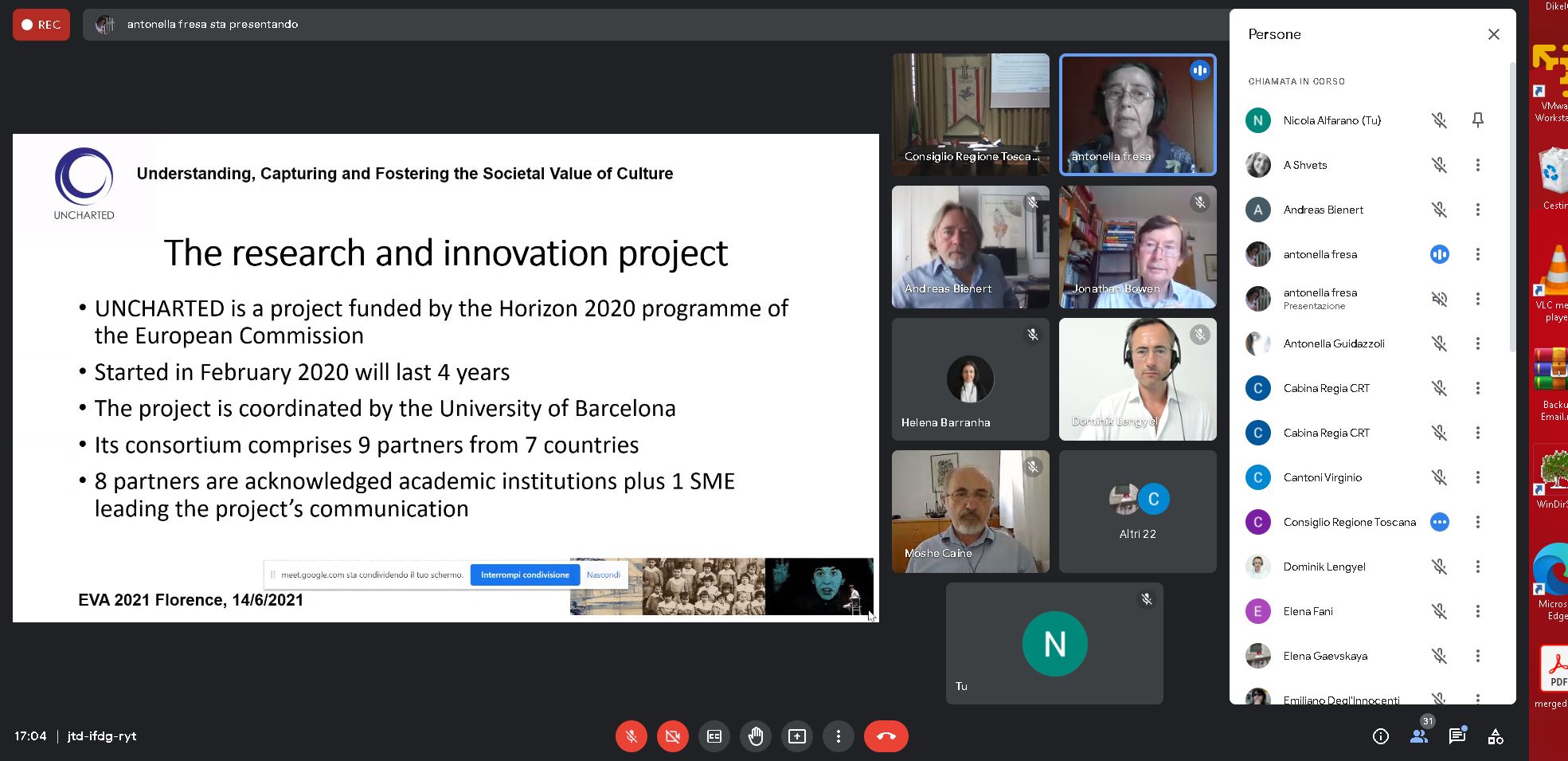 On June 14th 2021, the UNCHARTED project was presented at EVA Florence 2021, the “Foremost European Electronic Imaging Events in the Visual Arts”. The Conference was held at Palazzo del Pegaso, Regional Council of Tuscany, Florence and attended by participants on line.
On June 14th 2021, the UNCHARTED project was presented at EVA Florence 2021, the “Foremost European Electronic Imaging Events in the Visual Arts”. The Conference was held at Palazzo del Pegaso, Regional Council of Tuscany, Florence and attended by participants on line.
The key aim of this yearly meeting is to provide a Forum for the user, supplier and scientific research communities to debate and exchange experiences, ideas and plans in the wide area of Culture & Technology. Participants receive up to date news on new EC and international arts computing & telecommunications initiatives as well as on projects in the visual arts field, in archaeology, history and other culture activities. It represents an important opportunity to promote working groups, new projects, technology and art exhibitions as well as to present scientific and technical demonstrations.
In this general context the UNCHARTED project was introduced by the Technical Coordinator, Antonella Fresa from Promoter srl, in the framework of session 5 “Access to the culture information” chaired by Enrico Del Re, University of Florence. After a brief description of the mission and the topic of research, Dott. Fresa presented the activities and events planned for the next future, in particular it was announced the first UNCHARTED workshop that will be held in Porto on September 2021 and will be the occasion to presents and discuss the first outputs of the project.
Download the presentation here.
Visit the UNCHARTED website regularly to follow the progress of the project and subscribe the Newsletter.
-
Join the
Digital Meets Culture
Newsletter! -
Join the
Digital Meets Culture
Open Newsroom! If you have interesting news and events to point out in the field of digital cultural heritage, we are waiting for your contribution.
If you have interesting news and events to point out in the field of digital cultural heritage, we are waiting for your contribution.
-
Free text
-
-
Upcoming events
-
 Siena (Italy), 8-13 September 2025
Siena (Italy), 8-13 September 2025 As the leading global event on digital technology for documenting, conserving, and sharing heritage—from landscapes and monuments to museums, collections, and intangible traditions—the Digital Heritage International Congress offers a unified stage for major world conferences, workshops, and exhibitions. … Continue reading →
 online on 22-23 July 2025. The deadline for proposals is 31 March 2025.
online on 22-23 July 2025. The deadline for proposals is 31 March 2025.The Museum Digital Summit will take place online 22-23 July 2025. MuseumNext is a global conference series on the future of museums. Over the past 12 months the events have brought together more than 20,000 museum professionals for their … Continue reading →


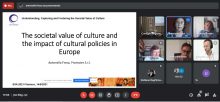

 The ILUCIDARE Consortium including Europa Nostra, and the European Commission are delighted to present the shortlisted projects for the 2021 edition of the ILUCIDARE Special Prizes, awarded within the European Heritage Awards / Europa Nostra Awards!
The ILUCIDARE Consortium including Europa Nostra, and the European Commission are delighted to present the shortlisted projects for the 2021 edition of the ILUCIDARE Special Prizes, awarded within the European Heritage Awards / Europa Nostra Awards!

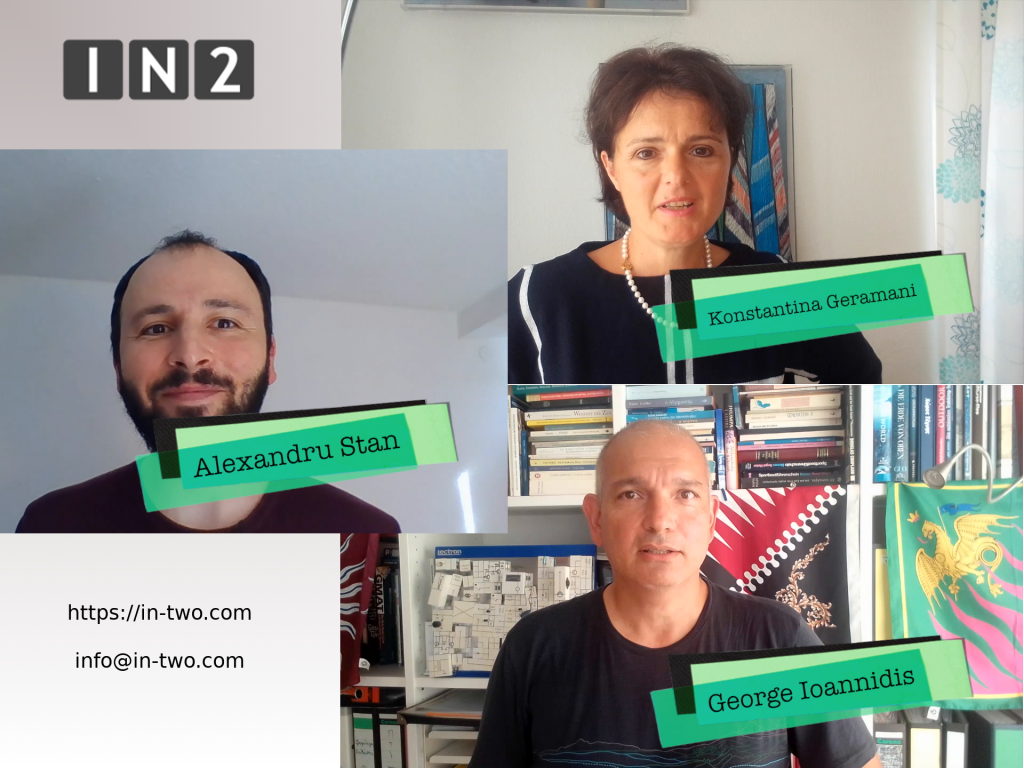
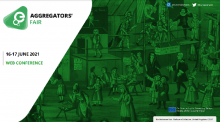
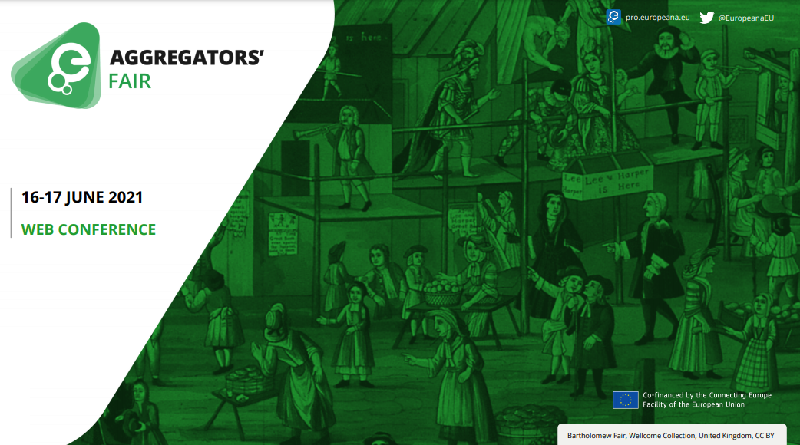 On June 16 – 17, the Europeana Aggregators’ Forum will open their virtual doors to cultural heritage professionals and anyone with an interest in high quality, open cultural heritage content at the Europeana Aggregators’ Fair.
On June 16 – 17, the Europeana Aggregators’ Forum will open their virtual doors to cultural heritage professionals and anyone with an interest in high quality, open cultural heritage content at the Europeana Aggregators’ Fair.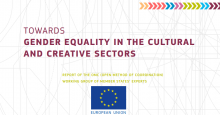
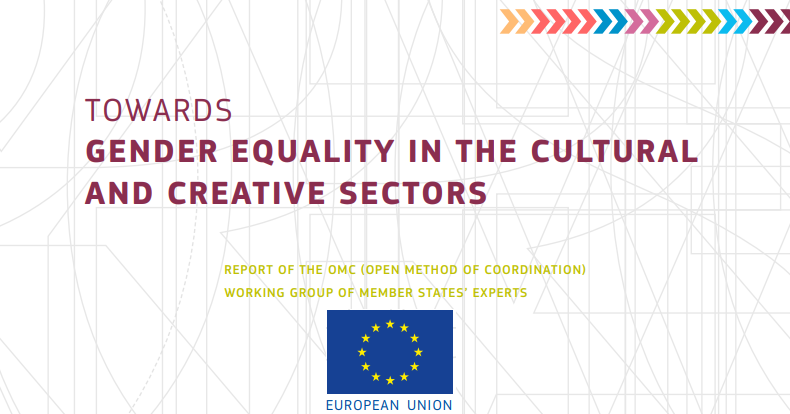 The report “Towards gender equality in the cultural and creative sectors” focuses on the role that culture plays in promoting gender equality and how to achieve gender equality within the cultural and creative sectors.
The report “Towards gender equality in the cultural and creative sectors” focuses on the role that culture plays in promoting gender equality and how to achieve gender equality within the cultural and creative sectors.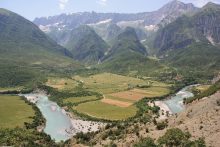
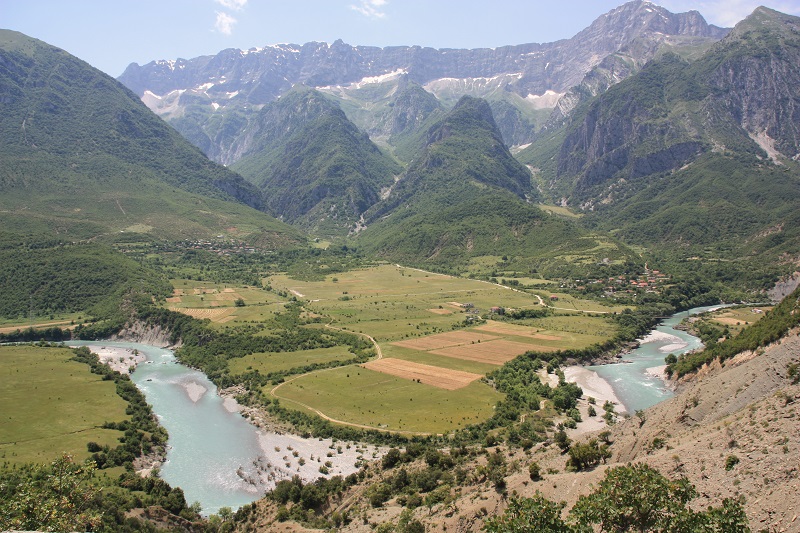
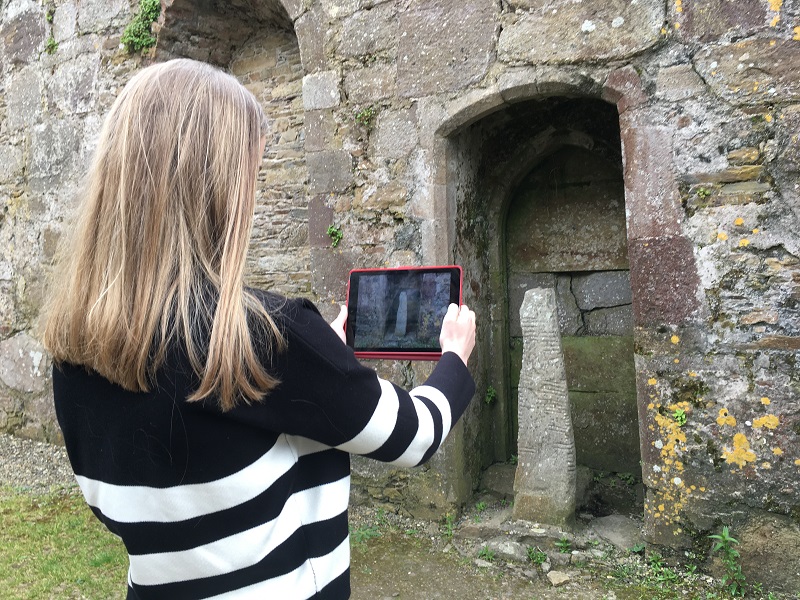
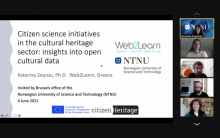
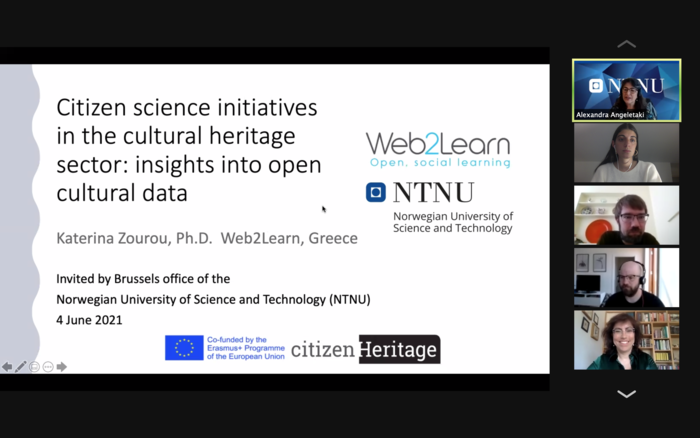

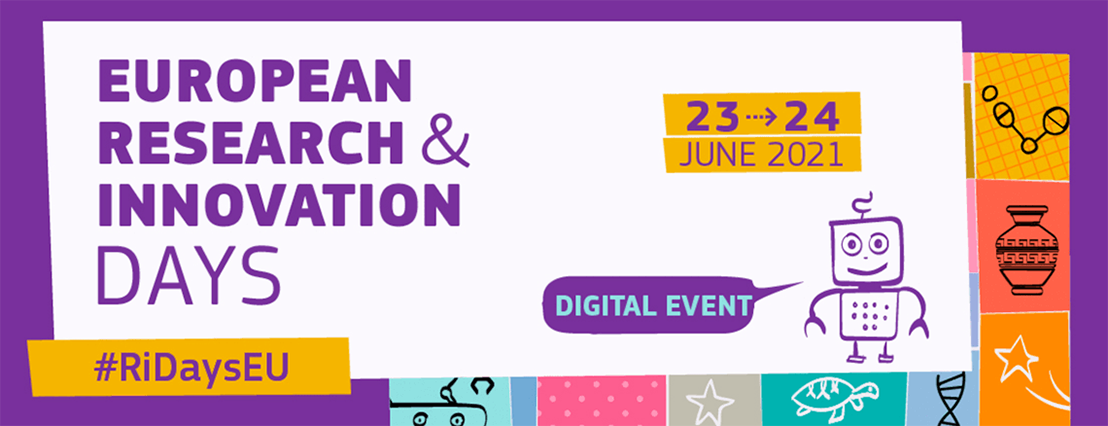 The EU annual meeting has recently opened the door to registration. This second on line edition is planned for the 23th and the 24th June 2021. As every year this Research and Innovation event organised by the European Commission, will bring together policymakers, researchers, entrepreneurs and the public to debate and shape the future of research and innovation in Europe and beyond.
The EU annual meeting has recently opened the door to registration. This second on line edition is planned for the 23th and the 24th June 2021. As every year this Research and Innovation event organised by the European Commission, will bring together policymakers, researchers, entrepreneurs and the public to debate and shape the future of research and innovation in Europe and beyond.